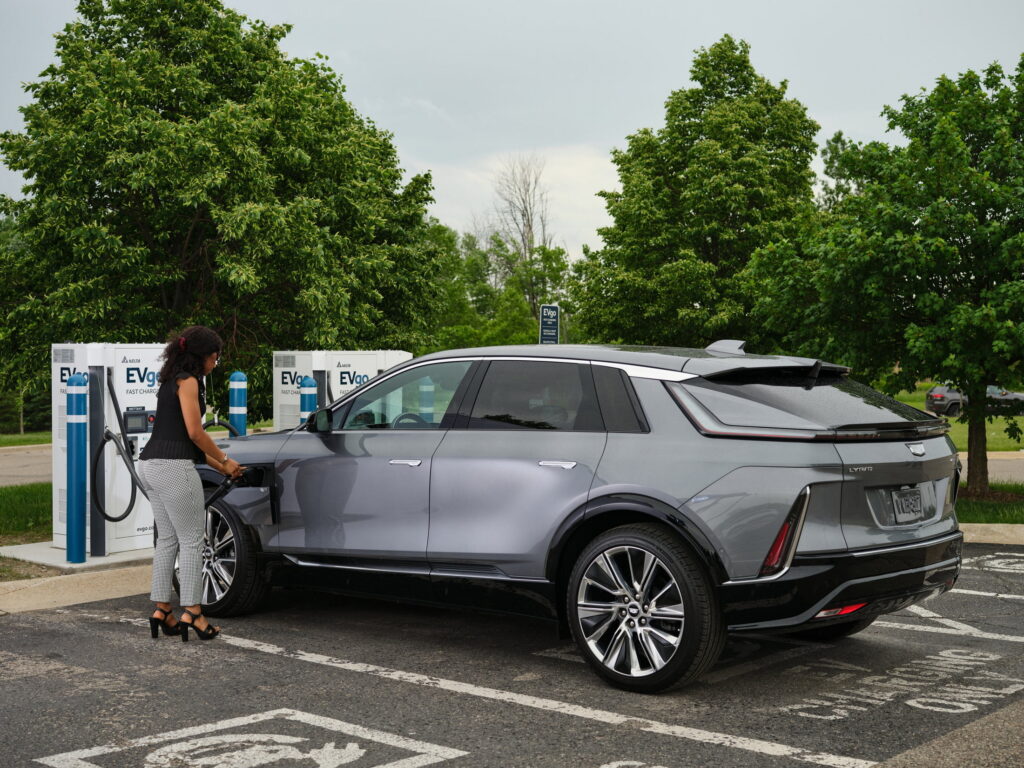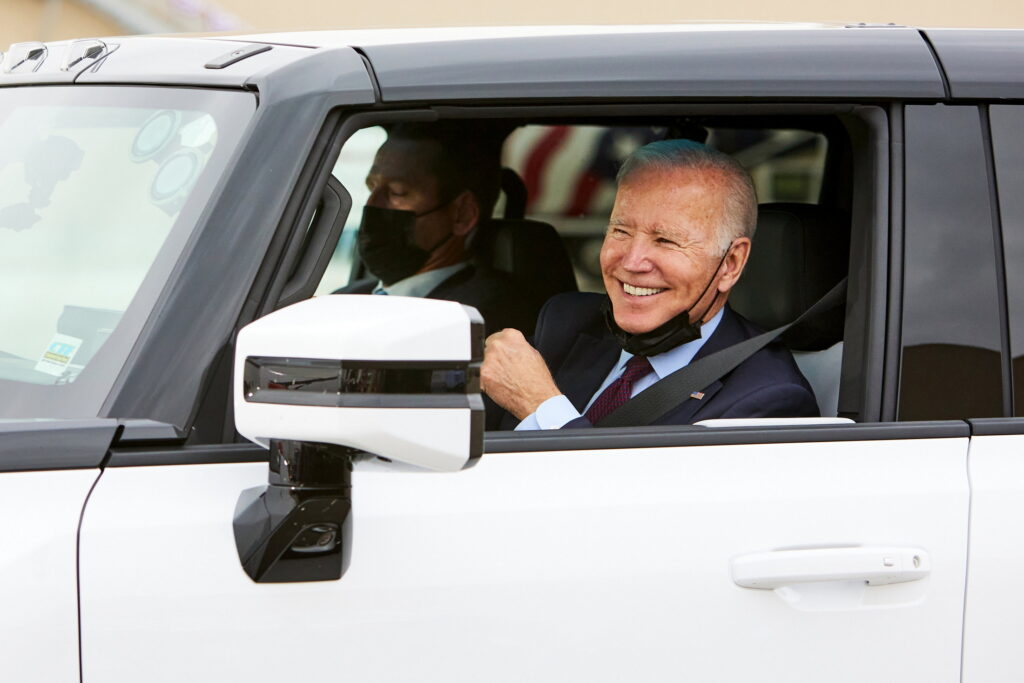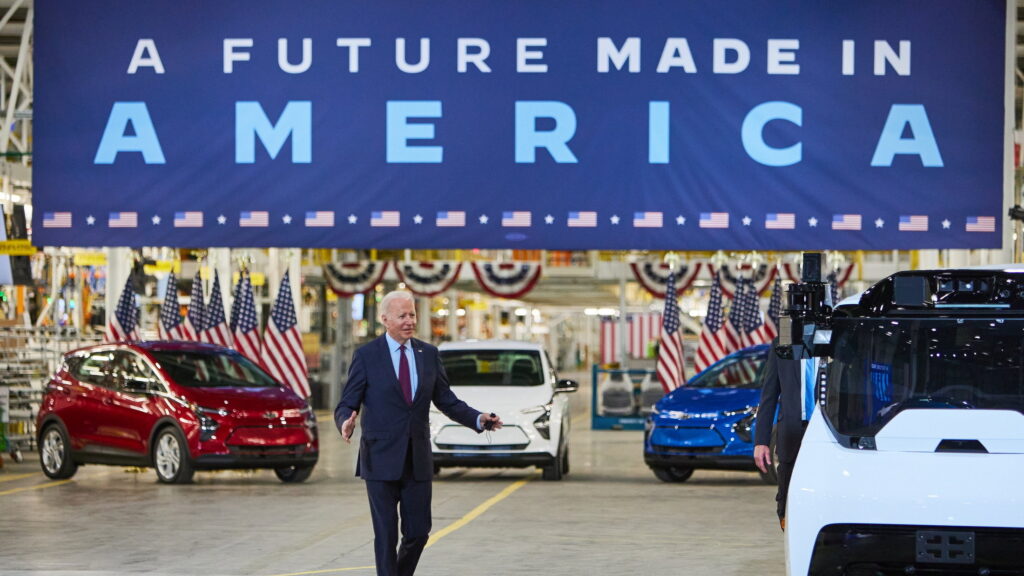The U.S. Senate has passed a bill to overturn a short-term waiver offered by President Joe Biden to EV charging station manufacturers. The decision could delay the roll-out of chargers that the White House hoped would accelerate EV adoption, so it plans to veto it.
Senators voted 50-48 in favor of the Republican-backed bill that seeks to overturn the waiver offered by Biden. Senator Marco Rubio claimed that Biden’s actions would have allowed government funds to “go into the hands of Chinese companies to build electric vehicle charging stations.”
The White House disagrees, saying it introduced the waiver to give the American charging infrastructure industry a boost. Reuters reports that the measure is intended to allow manufacturers to source steel and iron from outside of the country until July 2024, while still qualifying for government grants.
Read: Made-In-USA Rules Could Make EV Charging Situation Worse Before It Gets Better

After the waiver expires, manufacturers will have to source more than 55 percent of the parts used in the making of EV chargers domestically in order to receive funding, as was laid out in 2021’s bipartisan infrastructure law. Under that law, the government set aside $7.5 billion to help fund the installation of EV chargers across the nation.
The White House argued that the newly passed Republican bill hurts “domestic manufacturing and American jobs” by completely eliminating the domestic manufacturing requirements for government-funded EV chargers.
It claimed that the bill will also overturn the Federal Highway Administration’s decision to extend Buy America rules to EV chargers in the first place. That would mean that earlier standards introduced under the Reagan administration would again apply, ultimately meaning that no percentage of the parts used to make an EV would have to be sourced from America in order to qualify for federal funds.
Meanwhile, U.S. state governments and charging companies have warned that the demand for infrastructure is straining the supply chain. That makes it difficult, if not impossible, to abide by made-in-America standards while also expediting the construction of more charging stations.





